#Than Anyone Else Ever In The History Of The World Ever; Because Of Racism
Explore tagged Tumblr posts
Text
ok sorry the OTHER thing about lucienne is like. as previously stated she is dream's handpicked emissary from the waking world to the dreaming she's the diplomat in chief she's the translator she's the bridge. because the dreaming is, in a very real way, dream's own psyche, this is tantamount to giving lucienne a tremendous degree of access to his interiority and by transitive property also tantamount to entering into a deeply emotionally intimate relationship with her (unimportant for the purposes of this post whether that relationship is platonic or romantic).
now, in general, looking at the pattern of dream's close emotional relationships—dream doesn't share himself with people as a rule (beyond the access that all things that live have to the dreaming; but i'm talking about his self here, the one he doesn't like to acknowledge he even has), but when he does share with people, it's with people who have some shadow on the soul, so to speak. just looking at attested relationships in show canon, his deepest emotional connection seems to be with death, who embodies the duality of light and dark even better than he does himself. calliope is the muse of epic poetry—heroism and tragedy—and also bears the sort of divine pride that led her to cut dream off for hundreds or thousands of years when he wronged her. the less said about that other guy, the better, but he's no sunshine-rainbows-unicorns type—he's a soldier of fortune, a bandit and a killer, a man who profits from the sale of human life. even best bird matthew, in comix canon, had a sordid past that will maybe be partially retconned for the show but has still been gestured at.
dream likes the complicated ones. he's drawn to them. they speak to something in him that he won't acknowledge in himself (he has to be Whole, fully integrated, without reservation, because he is the king and he is the dreaming and if the dreaming ain't whole then the universe is in trouble—but he feels that ache nonetheless).
all that is to say: when people try to portray lucienne as dream's Designated Well-Adjusted Neurotypical Friend, i begin to harm and maim.
#chatter#as usual there is a larger pattern of behavior around this post that has been making me crazy for some time#it's the ''holder of the braincell'' trope but it's also just like the flattening of female characters of color in every possible dimension#so many people are terrified. TERRIFIED. to imagine a woman of color's pain#because the demands of shallow progressivism are such that they require you to acknowledge that A Black Woman Has Suffered More#Than Anyone Else Ever In The History Of The World Ever; Because Of Racism#but the demands of wider fandom are such that they require you to buy into the concept that A White Man's Suffering#Is The Only Suffering Worthy Of Care Attention Or Interest.#can't handle the dichotomy so instead they create the imago of a Black woman who has never suffered anything ever#she cannot be mentally ill; she cannot be disabled; if she is queer then it is in a way that is wholly self-contained and complete#and not ambiguous or in flux in any way; and most important of ALL she can never have experienced racism.#because racism As We Know is the worst form of suffering. so if she'd suffered racism then that would make her more worthy of#compassion than White Guy No. 37. which must not be#the very idea that lucienne is simply at peace with herself and the dreaming with no further complication.......like!#WOMEN OF COLOR ARE NEVER AFFORDED THAT KIND OF CERTAINTY. ARE YOU STUPID.#and by the way being reserved/calm/unassuming/practical are NOT absolute indicators of mental wellness.#y'all can see this when it's a white guy what is your fucking DAMAGE when it comes to women of color.#OPEN YOUR EYES. USE YOUR POWERS OF DEDUCTIVE REASONING. DREAM DIDN'T CHOOSE HER TO BE HIS THERAPIST.#DREAM CHOSE HER BECAUSE; PRESUMABLY; SHE ACHES. SHE CONTRADICTS. SHE GRAPPLES WITH THE SHADOW ON THE MIND.#SOMETHING IN HIM SEES A KINDRED SOUL IN HER. WAKE UP FOR THE LOVE OF GOD.
19 notes
·
View notes
Text
"the public education system is intently evil and all teachers are abusive because it was the worst experience ever for me personally"
guys, look, I'm legitimately sorry that happened to you. that's fucked up. it shouldn't have happened, and it shouldn't be allowed to happen again to you or anyone else. I'm sorry.
public school was hard for me too, at times, and I'm still suffering the consequences for the harsh grading, the arbitrary deadlines, the hours of completely useless-to-me homework. I could name a few teachers who have been pretty fucking terrible. the fact that nobody considered getting me evaluated for ADHD has had an impact on my self image and academic success that I can't erase.
and also.
I grew up in an area where education, in particular, is incredibly progressive-leaning. educators are working really hard to create and try out education philosophies and practices that prioritize kids and their learning, rather than teachers and what they think kids should learn.
My sex ed was comprehensive, and came entirely from school. My gay sixth grade teacher taught me about HIV/AIDs in a useful, accurate way. In high school, I learned about the way orgasms work & I was prepared not to feel shame for normal stuff.
I learned that Communism was not what the USSR actually practiced, and what it really means. I learned about atrocities and, specifically, the genocide of indigenous people committed in/by the US. I learned about the military industrial complex, the school-to-prison pipeline, and I learned about manifestations of racism specific to my local area. I learned about Stonewall, and the intersection of the civil rights movement with gay rights and disability justice.
My creative writing teacher taught us about LSD, and the real reasons we shouldn't do it, after a hilariously ineffective assembly run by some local cops. He spoke gently, carefully, and emphatically about his friends and his own experiences. Later in the semester, he read us a story he wrote about two gay men finding each other in a deeply homophobic environment.
My sci-fi teacher made me feel safe & seen as a kid with "weird" interests. My US History teacher helped me research and put together a 10-page paper on the modern relevance and mission of Feminism. My government teacher made me feel appreciated for the work I put into the class, and the thought I put into what I said in it, even though he disagreed with a lot of it. My sixth grade teacher bought me books to read with his personal money, whichever ones I asked for. My third grade teacher made me feel safe. My science teacher in middle school made me excited for and passionate about science, and saw and nurtured the effort I put into her class.
A lot of stuff sucks, absolutely. But I am seeing new teaching methods being tried out all the time, and I am watching teachers get really excited when I teach their students about the roots of modern graffiti in US black history & to question property laws, and just...
There's hope. there are so many people doing so much work to make things better. so many people agree with you on what education should be, and are trying so fucking hard to put that into action, and so many public schools- not just teachers, but whole schools and even districts- are really doing that work. so much is getting better.
I had more to say, about necessary childcare and trusted adults and outside contacts and time away from abusive family. But like. Please just sit down and listen to more people on this, and please talk to educators and education professionals about what's really going on in this big huge world of philosophy, science, and practice.
5K notes
·
View notes
Text
I just watched Wish (2023) and it made me realize something kind of sad about Disney’s treatment of villains.
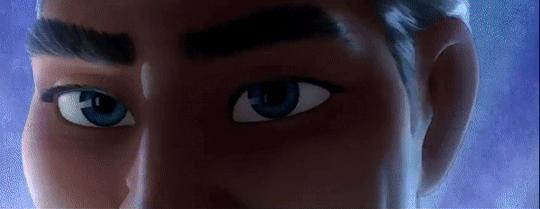
So Disney has a long history of villainy from the OG Evil Queen who is willing to murder a girl just for being pretty to the misguided like Auto thinking he’s protecting humanity in Wall-E. They are mean, jealous, prideful, vain, and many relish in just being the worst of the worst. However every now and then we get a glimpse of more complexity. Zootopia’s Bellwether dealing with years of racism and mistreatment, Gantu trying to stop what he thinks is a monster in Lilo and Stitch, Up’s Muntz being a heroic explorer before paranoia consumed him, etc. The thing that makes me sad about these villains is that not one of them has ever had a chance at redemption or change in Disney’s eyes and nowhere is that sadder to me than their latest villain, King Magnifico.
(Spoilers below)
King Magnifico is the magical founder of a utopian society that accepts people of all races, religions, and backgrounds. Who created this wonderful place after what is heavily implied to be a violent invasion destroyed his homeland when he was but a child. This past trauma led him to study magic and become a powerful sorcerer so that nothing could hurt him or the people he cared about ever again. His magic is a protection that he extends to all who choose to live in the city. The city is vibrant with a colorful community full of artisans, musicians, and dancers. He takes no taxes from them, but does take their one true wish upon joining this society.
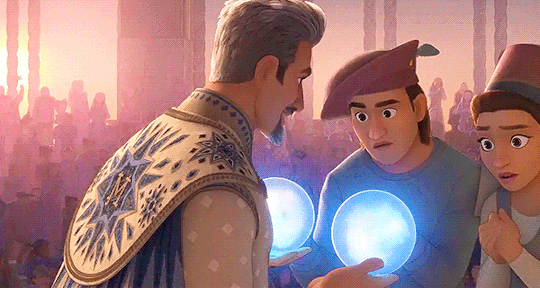
When given these wishes it is understood that he will ensure their safety and possibly grant them one day. Something important to note about the physical manifestations of the wishes is that they give off a warm and comforting aura as they represent some of the purest parts of a person’s soul. Magnifico has been surrounding himself with this magical comfort for a very very long time by himself and I don’t think it’s unfair to say he has become addicted to their presence. The wishes are giving him a magical comfort through the kind souls within them, a feeling he could’ve probably also gotten if he had spent more time with his people.
It doesn’t look like he ever really got the chance to commune with his people properly because somehow the society kicked off on his wish granting abilities. People had to give him their wishes if they wanted them granted and eventually the ones that he couldn’t grant in good conscience or out of fear started adding up so he began locking them away. Keeping them safe so no harm came to the people. The rare occasions that anyone else interacts with these wishes is during wish granting ceremonies that the people are borderline rabid for. With good reason, it is their souls they’re thirsting for after all even if they don’t really know it.
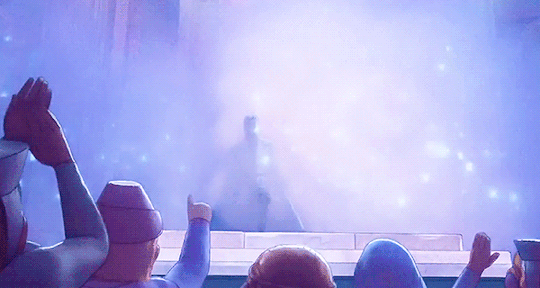
However, Magnifico clearly doesn’t see it that way. He sees it as he’s given these people a wonderful safe haven from the horrors of the outside world where they can be whoever they want to be, do what they want to do, make what they want to make, and still all they see in him is a tool to fastpass to something else they want even more than the peace he’s given them.
This is clearly shown early on, before any of his evil behavior starts to take root, in relation to his assistants. We get a expo dump after the first song telling us that Asha wants to become one of his assistant to increase the odds of her grandfather’s wish being granted as there is a correlation between past assistants and having wishes granted. Something important here is that there have clearly been many assistants, suggesting that it’s a revolving door position without really explaining why. Who would want to keep finding assistants over and over again, when really you should find someone who could do the job long term right? Well we get to find out the likely reason when Asha steps up for the role.
When Asha comes to interview for his assistant position he sees she is nervous, he tries to calm her down, and he even manages to relate to her through fond memories of her kindly father who he clearly knew. After seeing her true resolve to do good he decides to trust her with something few people in the entire kingdom get to see, the vault of wishes. To which Asha doesn’t even hesitate to ask, after politely being told not to prior, if he’ll grant her grandfather’s wish.
Magnifico is blatantly stricken by her request, sadly remarking that most people at least wait a few months before doing so a.k.a pretend to be interested in helping him rather than trying to use him to grant a wish. This is likely why the assistant job is a revolving door. Magnifico tries to find someone who he thinks will truly and selflessly fulfill the role only to discover time and again that people are just using it to get direct access to him to ask for a wish. Then he can’t trust their true intentions anymore and moves them along.
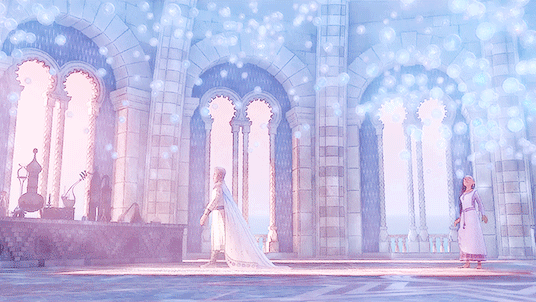
After Asha makes her request he does take the time to look at her grandfather’s wish but dismisses it as too dangerous because it is the vague desire to inspire the next generation. Clearly we as the audience know that her grandfather means to inspire them to do good, but we have to remember Magnifico has seen the worst of society. He has seen the darkest wishes and desires of mankind and survived them. He brushes Asha off telling her she’s too young to understand, which is honestly true. She’s lived her entire life cloistered in peace and comfort thanks to him and the rules he has made. She has never had to know war, strife, or hardship thanks to him, yet she doubts his decision without understanding the trauma that guides it. This is what I believe pushes Magnifico into his villain arc, something that I don’t think we’ve ever really witnessed in a Disney movie.
Usually a villain already is the villain by the time the film rolls around, even the twist villains. Lotso had already been deliberately sentencing other toys to torture. Prince Hans was already planning to murder his way to a throne. Evelyn was already plotting her revenge. Magnifico wasn’t though. He was the hero. He had saved his wife and a whole city’s worth of people from whatever drove them from the mainlands. He wasn’t physically abusing/mistreating people like Gaston even if he was vainly basking in their adoration.
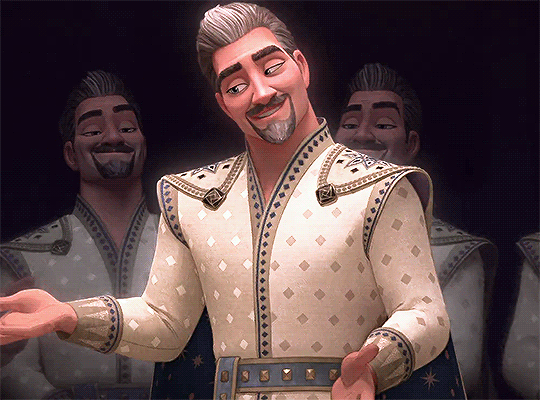
When Asha pushes him on the wishes he pulls back from her, identifying her in his mind as a threat and treats her as one. He dismisses her and tells her that her family’s wishes will never be granted by him, but he will still keep them safe as he has been doing. Essentially meaning nothing will change for her from what it has been. You know a happy loving existence of complete acceptance and wholesome family life or as Asha interprets it, a fate worse than death.
His interaction with Asha triggers him, as she’s pushed at the flaws in his reasoning for holding onto the wishes. The flaws are true, but his mind is clouded by fear of a lack of control, likely stemming from the horrors he witnessed in his childhood when he had no control. He also likely has a bit of an addiction to the warm fuzzies that the wishes give on top of his fears. While he’s ruminating on that some massive wave of magic blows through the kingdom and messes with the thing he’s already stressed beyond reason about, the wishes.
Magnifico frantically searches for any answer, even considering a dangerous tome of forbidden magic that he knows is trouble before his wife manages to talk him down.
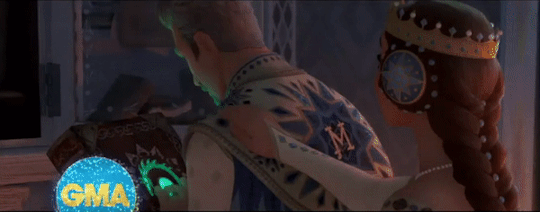
The fact that he could even be talked down rather than ignoring her outright shows that Magnifico does have good in him. He’s just reacting out of a genuine panic. His panic is only worsened by huge mob continuing to beg him for wishes in exchange for doing what should be the selfless act of defending their kingdom from what is essentially perceived as an attack. Not having any faith left in his people he turns back to the evil book to give him the key to stopping this perceived attack.
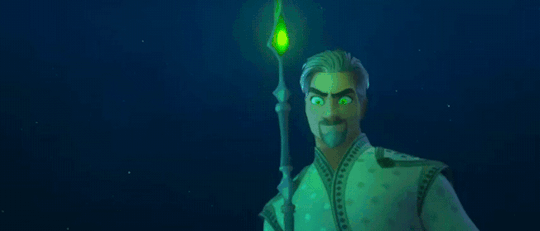
Just to be clear King Magnifico goes to the big bad evil book not to gain more power for funsies, but to try to find a way to stop a perceived threat. Everything he does from this point on, such as threatening his wife, can no longer be fairly tied to him, because as the movie repeatedly tells us he is under the EVIL book’s influence. His wife even looks through the same book to try and see if there is a way to break the sway she knows it has over him, but says she can’t because the EVIL book said no.
Yada yada yada and Magnifico is sealed inside a magic mirror and smugly told to rot in the dungeon by his previously loving wife.
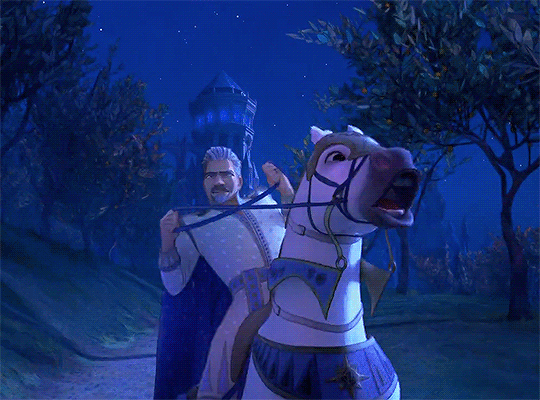
Seriously?! What the heck?! This guy was the perfect candidate for rehabilitation. He wasn’t flawless, but he wasn’t a murderous psycho like most of the other Disney villains. Disney loves to preach kindness, acceptance, and good will with their heroes, but never does it allow the message of change.
I was shocked going back through the catalogue and slowly realizing none of their villains, regardless of how tragic their origins are, are ever truly allowed a second chance. The hero may offer it, but the baddy never is truly expected to change or reform. Which is honestly super messed up to me. People make mistakes. Some can be small/insignificant, but some are big and do hurt people sometimes. That doesn’t mean they can’t change for the better.
Now I’m not saying every villain is redeemable or good, it’s just a bit surprising that for all the messages of kindness and acceptance we haven’t really gotten forgiveness in 100 years. Seeing the “bad guy’s punishment” just deeply bothered me this time. Probably because so much of the bad that Magnifico does is clearly a trauma response and as a punishment for not acting appropriately to said response he gets sentenced to eternity is magical cell.
#disney wish#wish 2023#king magnifico#wish magnifico#magnifico x amaya#queen amaya#amaya#wish king magnifico#wish asha#disney villains#100 years of disney
990 notes
·
View notes
Note
call me a hater but the lack of abby is good to me
PURELY BECAUSE OF PERSIA
if abby was played by anyone else then yes we would need moreeeee
but persia already headcanons and cosplays as a series regular
It’s a safe space over here lmao. Enjoy this messy rant on Abby lol.
I just had this conversation with my lovely besties a few days ago but Bonnie deserved to tell her parents off: Abby, Rudy and Grams for different reasons that is. Abby for abandoning her multiple times, Rudy for loving Bonnie but only as a human and Grams for not being truthful about the supernatural world and guiding her early. But too keep it focused on Abby.


I’m not a fan of Persia’s performance either. Every scene of Abby and Bonnie is: Abby whining & lacking accountability. Idk, if that’s how Persia was supposed to act as her but I’m not sympathizing with Abby’s struggles. I see her victimizing herself when she hurt Bonnie. Now, yes racism plays a big part in the lack thereof for Bonnie’s family! Abby doesn’t behave as if she feels guilty. Abby talks a lot about herself what she can’t do and why she can’t do it. She doesn’t try with Bonnie. Bonnie told her directly what the problem is and what did Abby do? Make it about herself. Abby’s selfish, whiney and acts immature. Bonnie should’ve lit fire on her ass. Perhaps, Persia couldn’t do more with a limited character.

No disrespect to these gifs and the creator who did work hard on that! I want to emphasize that in the nicest way possible.
Abby becomes a tool to prove how good of a friend Caroline can be. I take no issues with Caroline defending Bonnie. This scene would be more impactful if Bonnie was speaking. Bonnie and Abby as a relationship needed to exist between them and not a middle woman lol. Abby ties Elena’s history to the Mikaelson’s even further by dissecting Mikael. Hell, I would even argue Abby was happier to see ELENA than she ever was to meet Bonnie because of her past with Miranda. But with Bonnie she just closes up. We can’t forget Abby drugging Bonnie repeatedly either… I just wished Bonnie got to request that she stays out of her life.

Bonnie’s expression arc would’ve been perfect to try and develop Abby (who had her own dark magic past) but it was a missed opportunity. We know that Abby has stopped a human heart before… who heart? We will never know but that’s all I got tonight love!
To sum it up: I don’t care who played Abby if she was going to continue to treat Bonnie like shit she might as well not been there at all or allow Bonnie to make the decision of not having her around. Grams wasn’t perfect either but we can see her first priority at all times is Bonnie. She doesn’t care about anyone else. I would have loved a scene of all 3 of them together but wishful thinking and too many black women for those writers.
Persia has headcanons about Abby? I seriously had no idea. I thought she was leaning more into the Mikaelson thing because of Joseph respectfully.
#bonnie bennett#Abby Bennett Wilson#Abby Bennett#special shoutouts to the kb discord as always 💜#tvd#the vampire diaries#dria responds#dare i say maybe Abby could’ve redeemed herself a DROP if she killed her own friends to save Bonnie but we ain’t doing that rn#anti tvd#anti the vampire diaries#kat graham#persia white
44 notes
·
View notes
Note
delta what is this ??www*tumblr*com/heyyjulien/771869362594480128/nico-rosberg-getting-chocked-up-after-remembering?source=share Nico 🥺 when I read fans shouting that they want another brocedes (in the skins of Charles/pierre or Alex/george) I get mad . It was not funny it was not amusing seeing two people destroying each other, watching them with such hurtful glances, already mourning what they were losing. It was nearly gore seeing them interact and both of them only looking one other when the other was unaware. Do you think that we can have another brocades delta??
not nico forgetting that he did tell lewis 😭 that's actually quite funny. he texted lewis before he announced it (that's the same way he told his parents btw) and it was actually really interesting to see lewis refuse to tell the press what nico had said in the text, because at the time, lewis was the one telling the media everything about their relationship and defining it to them, usually in a pretty negative way. so to see him be protective of that relationship for once was actually very interesting. and all of that for nico to completely forget it 😭
i personally don't think there ever can be another brocedes, i think it's just that their relationship/dynamic has been the most interesting one in f1 for a very long time (maybe since prosenna) so that's why people keep trying to invoke it to counteract the pr friendships that are being constantly pushed. but ultimately, it took a very specific set of circumstances for brocedes to happen.
when you look at the other childhood friendships on the grid, they're just not the same as nico and lewis. i think they lack the specific childhood isolation/othering aspect that is really central to lewis and nico's friendship. charles and pierre are friends because they get along and got along. i can't speak to the racism that alex faced as child in racing, though i assume there was some, certainly he experiences it now in f1, but from a young age he had people like george and lando looking up to him and admiring him. lando had posters of alex (potentially homemade?) on his wall, there are photos of a very young george taking photos of alex, so clearly there was a decent amount of respect and admiration from his peers in a way that lewis and nico simply did not experience. so their friendships and childhoods are not rooted in the specific experiences and emotions that i think led to certain resentments and entitlements when lewis and nico were teammates.
and then i think you have to look at talent. lewis and nico are the most successful teammate pairing in f1 history. you have to go back to the 50s when there were 6 races in a season to find teammates that compare to them in percentage terms, not even straight numbers. they were together for less time than many other pairings, including lewis and valtteri bottas, and one of the four years they were together was a red bull/sebastian vettel domination year. so most of their wins came in a three year period. and that three year period is still the most successful period in mercedes history. 2016 is a season so dominant that it is eclipsed only by mclaren's 1988 season with senna and prost. and they were that good because both of the drivers were truly talented. nico might not be lewis hamilton levels of great, but he was so far above the likes of valtteri bottas or rubens barrichello. if it had been anyone else in the other merc, nico would be a three time world champion. i'm not sure that the level of talent is the same in pairings like charles and pierre or george and alex. even if they were teammates, charles would wipe the floor with pierre, and i'm pretty sure george would win convincingly over alex. i just don't think the level of competition between them is in any way comparable to lewis and nico, and so even if they were teammates and a championship was on the line, i don't think it would be the same. there would almost certainly be resentment, and i'm not sure the friendships would survive unless pierre and alex did the whole danny ric acceptance of defeat thing, but it wouldn't be the same as the silver war.
#i really think a lot of the 'the new brocedes' thing is just people wanting a dynamic not fed to them by pr#and brocedes is just the most interesting relationship of the last decade#delta help desk
15 notes
·
View notes
Text
I know ppl downplay certain siblings trauma a lot but let me just reframe everyone’s for you based on the seasons
1) imagine the person you love the most sending you 185828282 miles away for 4 years to live on the moon. Completely alone. When you get back you find out that all the samples you put so much work into didn’t even get read or taken out. The person who sent you there tells you later that he put you there to guard the most precious thing in the universe but you can't help but think that he sent you up there because you died and came back looking like a monster. He left you on the operating table for two months and when he saw you again he couldn't even look at you.
Imagine being a little kid and being told you’re not special. And then living with 6 other people who are constantly praised because they’re more special than everyone else. Imagine them 30 years later still talking about you behind your back and blaming you for everything that went wrong.
Imagine being 12 and being so restless to see the world and to see what you can do that you go somewhere no one’s ever been. And it’s hell. And no one comes to save you. You think about how you saw your family dead in those first days. And it haunts you for those next 45 years.
2) imagine being transported back in time. You have powers that can kill people. And since you’re from the future you have history books on your side. You have the power to stop one of the most famous assassinations in history and prove to your dad (who’s alive now) that you’re GOOD. That you’re not the impulsive emotional crazy mess he always said you were. You just want him to love you, because whether you want to admit it or not, you want his love and validation more than anything else in the world. You don’t prevent the assassination.
Imagine having to witness all the stupid things your brother does. You just want to give up sometimes but you literally can’t. So you put up with his attitude and stupid justifications and you never get to hug those 5 other people that you miss so much. Your brother says that ghosts can’t time travel. You don't get to say goodbye to him. Even though you hated him sometimes he had a good heart and you miss that good heart all the time.
3) imagine going through brutal racism and dehumanization every single day. Not knowing if your husband is alive or in jail or not. Constantly on alert. Your husband is the only thing keeping you from losing it. And the thought that your daughter will be there when you get back. You didn’t get to see her before the first apocalypse. You failed her as a mother and she died that night not even hearing your voice. Your brother was on the phone for you. You leave your husband for her. It’s the hardest thing you’ve ever done. Except she isn’t there.
4) (speculation) you used to be immortal. You got really sick one time from walking barefoot in a field and from something you smoked. You got shot by a spear gun. You came back. You can drink however much you want. You can get run over by a bus and you heal in half an hour. Now that you don’t have your powers it’s different. Everything is terrifying on a new level. Salmonella from the canteloupe and liver poisoning from the alcohol and flu from your brother's new kid. The clorox wipes smell like a security blanke and you can't get close to anyone anymore. Not even your sister. Not even your niece. And it makes your brother sad. You don’t smoke anymore and you’re so, so quiet. No one notices. You’re finally quiet.
#the umbrella academy#see if you can guess who!!!#but oh my god this made me so sad jesus christ#tua#luther hargreeves#diego hargreeves#allison hargreeves#klaus hargreeves#ben hargreeves#number five#viktor hargreeves#didnt include lila here sry#writing#kai's writing
114 notes
·
View notes
Text
[Personal rambling about my relationship with an event of recent history. This is not meant to reflect anyone else's feelings on the subject, just my own. If you reblog, please engage in good faith.]
[TW: discussions of 9/11 and its effects]
One of the side-effects of watching a lot of videos on the topic of architecture, especially in NYC, is getting really strong, complicated feelings rising back up about 9/11.
I was living in Queens when it happened, and not yet six years old. I was young, but a few moments of the day it happened is pretty clear in my memory. I was too young and not connected directly enough to the event to really understand what was going on at the time, but it was very nearby and had very strong impacts on my life both immediately, and going forward.
(After all, I had to fly inter-continentally just to see my grandparents, and I had younger siblings. Any family from Serbia needed to apply for a visa to come over to visit us, and most of them didn't speak English. Imagine how difficult airports are, right after that, if you hadn't experienced it yourself. This doesn't apply to just New York, but it does apply to me.)
Anyway, the memories are pretty shaky but definitely there for me. I was lucky enough to not have anyone who died in the event or the aftermath, but my surroundings were pretty heavily impacted due to proximity, and I imagine there's a lot that happened that I don't remember because my parents shielded me from it.
The thing is... I was still there. I still remember it, and I feel a sense of connection to the way NYC chose to rebuild after, the ways it worked to commemorate the dead, etc. I was too young to be involved and, for a time, too distant--I lived in Colorado for six years, starting '07.
It's still the city that's defined much of my life, either while living in it or living on LI, which isn't NYC but is in its shadow in all ways. I've lived in or near NYC for over half my life.
So when I look at New Yorkers reacting to the event or commemorations of it, I get it. New Yorkers erecting monuments and having strong feelings about 9/11 makes sense. Of course the people who live here and were directly hit by it have strong opinions! It was a major event! Of course city residents went feral with anger when a random luxury housing unity tried to build higher than One World Trade Center. You don't just... choose to be larger than a building that was designed to commemorate one of the greatest tragedies in the city's recent history, especially not when that building's height is already symbolic, being exactly 1776ft tall at the spire.
It might seem stupid, but I get it. I understand why NYC residents were furious at the idea, given how contentious the supertalls already are.
I understand why, over twenty years on, the rebuilding is still ongoing. I understand why 2, 5, and the Perelman Performing Arts Center have taken so long, and are still years away from completion. Nobody wants to get this wrong.
And the reason it gets so complicated is because there's this stark difference to my feelings on how the average American, and also some New Yorkers, it's true, might use 9/11 as a tragedy to fuel their racism and xenophobia and jingoistic warmongering.
This isn't my tragedy, for all that I was in its shadow, saw the smoke rising and felt the echoes of it across my childhood. I didn't lose anyone in the attack or the aftermath, and I wasn't part of a minority group targeted in its wake. I was only ever on the fringes... but it was still my city, you know?
When I was in high school, I lived in Colorado. We were discussing the difference between primary, secondary, and tertiary sources in class. The teacher used 9/11 as an example, saying that everyone in the room was a secondary source, because we were alive and saw the events unfolding on television, but we weren't there, just getting the information secondhand from the news.
I raised my hand, and said I lived in New York at the time, just across the river, and the teacher acknowledged that I was significantly closer as a source than most of the class.
I don't call myself a primary source on this. I wasn't even six, yet. My memories have faded with time, and I wasn't as close as many were.
But there's still a pride in NYC and in the rebuilding, in the way that the city bounced back. It's not so much about the architecture and rebuilding, for all that its symbolism is important and meaningful in its own right. It's more about the smaller businesses that were impacted by the destruction of a large section of the financial district, the local delis and bodegas, the hot dog carts at Bowling Green, and the wider economy hit by the ripples of the event, which definitely did affect everything in the metro area, not just the immediate surroundings.
So it's not my tragedy, really, but it is New York's.
And there's a specific kind of distaste and rage in me when I see it co-opted. When I see the average American call it 'our' tragedy. 'The nation's' tragedy.
It's not. It's not yours to use for your violence and hate for what you call Other.
I don't feel suspicion when New Yorkers hold on to the symbolism of the event, and snap back at corporate interests that try to disrespect the memory of it. This is New York's tragedy, and it makes sense for New Yorkers to feel strongly about it.
I sure as hell suspect everyone else that tries to claim it, though.
#new york#new york city#nyc#9 11#9/11#9.11#personal#phoenix posts#world trade center#tips are on because this took me a while to write and has the feeling of an op ed? so like. IDK#it's not fiction but it is writing
170 notes
·
View notes
Text
Proposal for Re-working the Kholins’ Character Arcs - a semi-coherent “essay” by me (feat. @akpaley, thank you for your contributions and for your attempts at editing.)
Hey guys. Different kind of post this time around, compared to my usual brand. It’s time for some fix-it fanfiction masquerading as literary critique. I won’t be using a readmore, I dunno, probably to punish anyone still following this blog or something. So! In this post I’m going to solve the all the issues of racial theming associated with the Kholin family.
I’m often very harsh on the Kholins for benefitting so much from exploitative power structures while doing little to help those below them. But then I’ve also criticized them for actually addressing these very problems in-universe. How can I be upset at them for their inaction and then also be annoyed when Jasnah ends slavery? The short answer to all of this is just that the ways these topics are addressed all feel very inauthentic. For example, in real life history it took over a century of protests, slave revolts, political campaigning, and civil wars to legally end slavery in Europe and America, and abolitionists were met with fierce opposition at every turn. A fictional world need not follow our same historical trajectory, but it still seems a little disingenuous for a monarch to just decide to end it within her first year of power because it doesn’t mesh with her philosophical framework. It’s more like trying to wrap up a subplot than actually address the topic.
Ultimately however, there’s only so far this line of criticism can ever take me because the Kholins are the protagonists and you can’t get rid of them without turning the whole story into something else entirely. And Sanderson shouldn’t have to, these are characters that he created and he’s allowed to tell a story about them. And I actually like a lot of their personalities and arcs and outlooks quite a lot. I do think it’s...unfortunate...to have used slavery and racism as disposable props in a story that ultimately turned out to be about a bunch of royals learning to be better people and saving the world along the way. So I guess what I’m interested in is if there’s a way to keep the premise, keep the characters, keep the general story beats, keep the themes of honor and personal growth, keep the basic structure of everything, and still handle those themes with grace. You know, could this be a compassionate story about addressing racism told from the point of view of nobility? Is such a thing possible?
Well, I’m going to try my best. And I’m going to be imperfect about it, obviously, so if you actually care enough to read all this shit, I welcome discussion and disagreement.
Jasnah is the most obvious example to point to as being indicative of the problem, but I also think she has the easiest character fixes. She’s already been established as an outspoken dissident on many of her society’s deeply ingrained values. Just add to her atheism and feminism that she’s also always been an outspoken abolitionist. Give her ties to an ongoing reformist movement. Have her lecture Shallan about it in Way of Kings. Make that a reason she’s butted heads with her family so much. I do think it’s poor writing to have a ruler end slavery on a whim, but I won’t deny that having the right person in power can make a huge difference. It’s not as cathartic as having Kaladin lead a slave revolt (or as having Moash destroy society <3) but that doesn’t make it inherently bad so long as the topic itself is still treated with weight. Have her moralistic ideology be firmly pre-established so that when she has to explain why she’s abolishing slavery, her reasoning can be purely pragmatic. The reason she’s moving so fast is because this is a historical point of heightened change, and so her reforms are more likely to work, but if she waits too long and things settle back into a new status quo, she may have missed her window. Not to mention, when her nephew comes of age, her own legitimacy as a ruler might be challenged, so she needs to do as much as she can in what may be end up being a short reign. As a character, Jasnah has always been able to girlboss her way past political realities through sheer force of personality, and that’s great and all, but I think it heightens her character’s competence if she does have to deal with real backlash, not just to her but to her policies as well. The narrative doesn’t even need to linger on her opposition, but acknowledging it and acknowledging that she’s simply a member of a preexisting and ongoing movement would have done wonders to portray slavery as a real and prescient issue. Then again, this is a topic which people have fought and continue to fight wars over, so it wouldn’t be unreasonable for her to have receive major backlash either; perhaps when the Kholins hear in Words of Radiance that she was assassinated, the news could come as tragic but not entirely unexpected so as to imply that her opposition has attempted such in the past. All this is to say, I don’t think it’s at all wrong for Jasnah to do what she did. I also don’t think her entire stance on abolitionism should have come down to a comment where she tells her uncle she’s trying to rule according to ethically consistent values. The fact that slavery was insultingly easy to end not only delegitimizes is as a topic worthy of discussion, but also is a really scathing indictment of literally everyone else in the ruling class who didn’t even think to try.
Jasnah done, easy, Dalinar next.
Dalinar is probably the most complicated character for me to discuss and form coherent statements on. He’s just so rife with contradictions down to his core. That’s probably why I continue to like him so much, why he’s still my favorite, even though I still consider him to be a Bad Person over all. I think deep down I’ll always lean a bit too pacifistic ideologically to ever consider a warlord/general to be a good person, no matter how honorable he may be or how much growth he may undergo. Don’t get me wrong, I still do love his growth. Dalinar is characterized by his constant change and forward momentum, even moreso than the rest of the cast. So for discussing him, at what point can I point to him and say “this is Dalinar, this is who he is, this is what he believes and what he cares about”? Of course, during any point in his arc, you’re going to have to grapple with the fact that all of his lofty rhetoric about honor and striving for personal betterment is ultimately going to be pretty useless to all the people whose lives he’s meaninglessly thrown away across his military career. For me personally, when I talk about his character I like to take the end-of-oathbringer approach, where I acknowledge everything he did in the past as Blackthorn, I agree that it was pretty fucked up, and I forgive him and grant him a clean slate. All this to say that even if I’m judging him purely by his behavior as the current Dalinar within the present day continuity of the books, he’s still a massive hypocrite with horrific amounts of blood on his hands which he’s never even bothered to consider. I dunno, when I first read Way of Kings and I first got to meet this general who’s leading an army in a literal genocide campaign, I sort of figured he’d get some kind of “wait am I the bad guy” moment at some point in the future. And he did get a moment in Oathbringer where he has to fully confront his guilt over past actions, it was great, I really really loved it! But it was also all about actions he took before the series even started, so I guess wiping out the listeners wasn’t a sin he thought needed any atonement. I’m not going to get into the narrative’s treatment of singers and listeners on this post (for no other reason than because I have waaaaaaay too much to say there) but the point I’m getting at is that however good Dalinar’s growth is and whatever direction it takes, it’s always going to have poisonous roots to me. And his treatment of class/racial issues is no different.
Fixing Dalinar is going to take a lot of what Dalinar does best: introspection. In Way of Kings, Dalinar dislikes how Sadeas treats his bridgemen because he believes it to be dishonorable, because he believes Sadeas is forcing others into a situation that he himself would never put himself into. He also has various sympathetic reflections here and there about how sad it is when soldiers die, and about how without the benefit of the Thrill, violence is actually kind of bad. You know how it goes. But I don’t think he ever put himself at risk to actually help or protect any of the people who are dying. Whether he wants to end the war or not, he still continues to participate in it. And he’s still willing to set aside the lives of literally everyone beneath him so he can pursue his dream of unity. The book ends with Kaladin and the rest of bridge four saving him and Adolin, and in gratitude, he purchases their freedom and gives them honored positions in his household. You know, because he’s so honorable. Everyone loves this scene, so I’m going to make it the catalyst for Dalinar’s new and improved character development. The problem with saying Kaladin helped Dalinar so Dalinar helped Kaladin is that when I’m being reductive and uncharitable (like I’m being right now), I can argue that their relationship basically started as a quid pro quo. This scene is meant to prove that Dalinar really is the most honorable person in Alethkar, just as Syl thought, only it doesn’t actually do that. See I don’t actually want Dalinar to start treating Kaladin as an equal. I want Dalinar to, in that moment, realize that Kaladin is better than him. That for all of his pontificating about honor, he would have never even considered risking his own life and the lives of his own family to rescue a bunch of bridgemen. I want him to see Kaladin’s honor, and rather than be validated in his beliefs, I want him to be thoroughly humbled. Let him spend all next book reflecting on all the lives of darkeyes he’s destroyed. Let it shame him, as Evi’s death shamed him. He already flirts with these lines of thought, and he already has an arc about confronting his past actions. Let the racial injustices he’s participated in be a part of that. Let him abandon his books and traditions instead look to Kaladin to learn what honor truly means. I don’t know how any of this would translate to his actions, because if we’re being honest his ideals are already quite incongruous with his actions, but the fact that he manages to have such strong theming regardless makes me think maybe that’s okay. I guess ultimately it would be enough for me if his character, as someone who symbolizes the ideals of a nation, was able to look at a darkeyes publicly be a follower rather than always trying to lead by his own personal example.
That’s Dalinar. Elhokar next?
I actually don’t think there’s too much wrong with Elhokar’s writing, especially in the first two books where a much greater emphasis on these themes were placed. He’s not a protagonist and we the audience aren’t supposed to endorse his actions. Most of what I’d change about his story is more about Kaladin and Moash than it is about him. I definitely don’t love that he can throw away the lives of his own people by the thousands in the genocide campaign that was the vengeance war, and then have the narrative just ignore all that in favor of him being sad about his own incompetence. If Elhokar is meant to be a sympathetic character, then when he calls himself a bad king, that’s what he should be thinking about, the number of lives he’s wasted over these years. I actually like him a lot more as a less sympathetic character, and I think I would have preferred if in oathbringer the narrative and the other characters would have stopped making so many excuses for him. Back to Kaladin and Moash, those are the two characters defined by their experiences as members of the downtrodden caste, so I personally sort of judge the problematic-ness of the whole story by how they get treated. Everyone loves to talk about how those two are foils. So. In order to strengthen Kaladin and Moash’s characters, either Elhokar needs to be as much of a monster as Amaram, or Amaram needs to be just as sympathetic and conflicted and having-of-a-toddler as Elhokar. Don’t get me wrong, I genuinely love the trope of finding at the end of a revenge quest that the person you hated has changed and grown. But I hate how this means that Moash’s hatred is wrong and unjustified, whereas Kaladin’s is validated at every turn. I don’t actually dislike Elhokar. I mean I think he’s a bad person, but I like a lot of characters who are bad people. I just think that if this story really wants to grapple with class and race (because it sure brings them up a lot for a story that doesn't want to talk about them), then Moash is a much more important character than him, with a lot more to add to that kind of discussion, which is why I think Elhokar’s characterization would have to come second to Moash’s development. (Obviously if this series were being reworked to be better on this topic, Moash would have to be written with a lot more compassion in general, but this post isn’t about him.)
Intermission time. Gavilar.
Gavilar is already perfect, 10/10, great character all around, what a guy, no notes, no wonder he’s so universally beloved among all of the fans, social justice icon.
Okay onto Navani.
I may not be the best person to talk about Navani. She has never been a favorite character of mine, and so compared to the others I haven’t thought as much about her values or the way she thinks or the narrative impacts of her actions. Someone who has more love for her would probably write better criticisms of her. (I’m going to reject any premise that falls along the lines of “Navani isn’t racist because she feels X,” but I’m not wholly confident in my analysis here, and I welcome any good faith critiques both of my own thinking and of her character when come at from other angles.) It’s hard to say where she should have grown from how she starts out viewing darkeyes because I don’t actually know how she starts out viewing darkeyes. I know I’m probably meant to assume she just treats everyone equally because she’s a Good Person on Team Good Guys, but it’s hard to just accept that she had all around good values when she married a warlord and was in love with his more violent brother. I dunno, was her “good guy” status meant to have always been an element of her character, or did she get it secondhand from her association with the new and improved Dalinar? With someone like Adolin, we got to see what shitty values he held at the start of Way of Kings (I’m talking about the Alethi warmongering, not his interest in fashion) but we also got to see how his father gradually won him over throughout the course of the book, and then later on we get to see him develop further on his own. For someone like Navani, I find it strange how she’s always so proactively supportive of Dalinar in everything, even when his own goals and values are in flux. I assume her character is just meant to be super ride or die when it comes to her family, and I do like that in a character, but that also means that she’s been wholly willing to support or at the very least excuse her family’s oppression and exploitation of darkeyes without comment. (See, Lirin is a much better parent than Navani, he would never have let his son start a whole genocidal vengeance war for fun and profit (I say this as if I’m joking but I’m kinda not.)) Some people have reminded me that she was pretty much shut out of the political process by Gavilar and Elhokar, and I agree with that, but I don’t really have any evidence that she would have cared much about darkeyes even if she had been more involved. In general it just seems like the whole topic doesn’t matter much to her. So what I would wish for the narrative would be to lean further into this. Draw attention to her cognitive dissonance and try and make the readers feel conflicted about her as a person. Highlight the fact that she’s willing to overlook the suffering that befalls other families if it means success for her own. I think one of my issues with her is that to me, this is a major (and interesting!) character flaw, but the books never seem to treat it as such. Honestly I think if this were intentional, I’d probably find her character really interesting, but from my reading of the text, I feel that I’m supposed to think of Navani as a generally decent person who’s by and large on the right side of things. The thing is, with the caste system playing such an integral role in their culture, I think she needs to have some sort of feelings about it, or else the fact that she doesn’t should be an issue to overcome. Otherwise she becomes another factor delegitimizing racial oppression as a real and important problem. If she’s a good guy and she doesn’t care about racism, then that’s saying you don’t have to be antiracist to be a good person in this world.
Probably could have done that one better. I dunno. Leave me angry and hateful comments if I’m totally misrepresenting your favorite character. Moving on.
Adolin already has some great character development across the books. And he already has kind of engaged with this stuff in his story. Unfortunately, that’s less used in the “this person was racist but is becoming better sense” and more used in the sense of “Kaladin learns that #NotAllLighteyes are bad” which is pretty unfortunate for a number of reasons. Especially since, if he actually was going to prove he’s different from other lighteyes, out of all the Kholins I think Adolin is the best candidate for being a full on class traitor. I’m serious, looking back over the events of his plotlines, it would suit him shockingly well while disturbing the overall narrative shockingly little.
Adolin’s current plot is loosely as follows: in Way of Kings he likes all the things someone of his station is supposed to like, clothes, violence, dueling, warfare, swords, hangtime with the guys, all the good stuff. At the beginning of the book he doesn’t understand why old, stuck-up Dalinar can’t just let loose and be a relelntless war-monger like everyone else, but by the end of the book he’s come to understand a certain value to honor and thus has begun to become a better person himself. Words of Radiance has him lose his popularity, fall out of favor with all of his friends, grow disillusioned with his society, perform a prison sit-in in solidarity with Kaladin, and murder Sadeas. Most of this is done again, because of his father, and how Adolin now wants to help and support him and his ideals. In Oathbringer he mostly isn’t involved in courtly politics, being away on a mission for much of it, but he does make a pretty big move by rejecting the throne. In Rhythm of War we see the schism that’s formed between him and his father until he leaves on another long-distance mission. Summary over. In general I reject the idea that making the Kholins be individually less racist makes for a better, or more nuanced and compassionate discussion of the topic, but if anyone is primed for a “lighteyes learns racism is wrong” character arc, I think it’s Adolin. Imagine him following a bit less in Dalinar’s footsteps and a bit more in Jasnah’s. You almost don’t even have to change any story beats: in getting to know Kaladin, something clicks in Adolin where he realizes that if he wants to treat Kaladin as his equal, he has to treat all darkeyes as equals, and so he realizes to his horror that he and his entire caste of friends and family are all monsters for treating them the way they do. (Actually, there is one plotline in WoR I’d probably scrap, and that’s his slowburn bromance with Kaladin. I mean I get what Sanderson was going for with the ribbing and then eventual friendship, but Kaladin was an absolute stranger who risked his own life to save Adolin and his father from certain death, and so I feel there should probably have been a bit more overt respect upfront there.) In pushing for his newfound belief in equality, he ends up burning through all of his intracaste goodwill and political capital, causing all of his friends to drop him. When he kills Sadeas, it doesn’t have to be about protecting Dalinar or about personal revenge, it could also be that he’s gotten to know Bridge 4 and learned firsthand about the atrocities they’d gone through, and so there’s no way he’d allow such a pioneer of human rights violations to stay in power. In the following books, maybe he’s become so politically toxic due to challenging the very foundations of his own power, his own family has to send him away on missions so he can’t rock the boat too much at home. Maybe refusing the throne was more of a political statement than a personal one, because he’s come to understand that being a ruler means oppressing thousands of others. Maybe this is another form of hypocrisy he criticizes Dalinar for, how Dalinar might claim to value darkeyes but how he still retains power bought with thousands of their corpses. None of this has to modify actual events very much, it just affects the reasons for them. And it would also meaningfully show why he gets to be a “good lighteyes” if he actually engaged with his status and rejected it, knowing it comes at the expense of others.
Okay, enough about that. Renarin maybe?
I won’t say too much about Renarin here, because I’d probably just end up repeating a lot of the same criticisms of how he’s used as a “good lighteyes.” From a narrative standpoint, all those criticisms hold for him as well. You know, he wants to join Bridge Four, and future-villain Moash doesn’t like the idea because he doesn’t trust lighteyes, but Kaladin reassures him that Renarin is a good boy, so don’t worry about it, and everything works out fine in the end, proving that lighteyes are good people just like you and me. This isn’t a problem with him as a person or character, it’s just more of that general theme of “the caste system is fine so long as nice people are at the top” which I clearly think should be interrogated. Thus far, in contrast to the rest of his family, Renarin is very young and has had much less of a political presence, not to mention fewer POV chapters anyway, so I think delving too much deeper here will feel a bit hollow to me.
Does Shallan count as a Kholin? I’d like to talk about her super briefly.
Unpopular opinion, but I actually think Shallan is one of the better characters on the topic of race insofar as how she’s written, especially compared to the other Kholins. But wait, I hear you say, what about all of her dozens of instances of casual racism? Yes, that’s what I’m referring to. I like how Shallan demonstrates how ingrained these harmful ideologies are in their society. I like how every time she has a distasteful thought, we the audience are reminded that racism still exists and even good people will continue to promote it if they don’t view it critically. I like that Shallan is problematic, because their society has problems! At least with her it doesn’t feel like the story’s trying to sweep the fact under the rug. There are plenty of issues with her writing, plenty of jabs at Kaladin that probably shouldn’t have been treated as cute. She’s actually the main character whose racism and classism I see criticized the most. And I think that’s a good thing! My issue with the Kholins isn’t that I think they should all be less racist, my issue is that their positions are inherently oppressive, and it seems as though the narrative doesn’t think that matters so long as deep down they’re good people. When people critique Shallan in specific instances, I tend to see a fair amount of consensus and agreement there, but when I critique the Kholins people will argue with me by pointing out that Dalinar/Adolin/Navani/whoever actually treats darkeyes as equals, so my arguments are invalid. Purely my own anecdotal experience of course, but it tends to make me think that there’s something in Shallan’s writing that’s working right, something that isn’t working for the other lighteyed characters.
Now obviously with all of this, I’m not saying I want these books to have more racism in them. What I’m arguing is that if the books are going to explore the topic (which they do) then they should treat the topic with an appropriate amount of gravity rather than acting as if it can be solved by having aristocrats become nicer people.
If you’re still here with me, thank you for reading, I love you, I hope you enjoyed yourself through my descent further and further into rambly nonsense. If you just scrolled to the bottom, that’s fair enough, there won't be a tl;dr but you’re welcome for filling your dash with massive text blocks.
#i'm going to be super nice and not put this post in any of the respective character tags#you're so welcome#i don't even know what to tag this as no one actually blocks ''long post''#i could tag it as discourse but my discourse tag is usually reserved for moash posting#also i genuinely am happy to read discussion about any of these points#i can't guarantee i'll reply to all of it but i welcome good faith disagreements (or agreements i suppose.)#except for my points about gavilar#try to argue with me there and i will make fun of you sorry#i should fully reactivate this blog but JUST for gavilar posting#preemptive faq response - q: why is this so long please put this under a cut. a: it's literally your fault for following me.
54 notes
·
View notes
Text
babel rant
okay so i read babel by r.f kuang and i really cannot stop thinking about it.
like i wrote a long piece of my mind and anyone can read it but it might uhm, ruffle some feathers...
anyways im going to reread this soon, if anyone wants to talk literally dm me or reply.
Babel by R.F. Kuang is a literary masterpiece which explores the concepts of racism, and the consequences of elitism, and can be compared to the likes of the Secret History.
“That's the beauty of learning a new language. It should feel like an enormous undertaking. It ought to intimidate you. It makes you appreciate the complexity of the ones you know already.”
To some extent that seems to be the issue I face when I begin learning a language. There is often some battle in my mind because I am made up of only one tongue. When I speak in English, I think in English. Therefore, when I am told something in the tongue of another, I have no choice but to turn it into something I understand. There is hope that some underlying knowledge is made clear to me when faced with a foreign tongue.
“That's just what translation is, I think. That's all speaking is. Listening to the other and trying to see past your own biases to glimpse what they're trying to say. Showing yourself to the world, and hoping someone else understands.”
When Kuang takes it out of the context of speaking, translation becomes something of objectivity. It is transformed into a means of understanding in which topics such as feelings, emotions, ideas, and values are given a new perspective. I could elaborate on my feelings to a stranger in hopes they can understand how I feel. I could express my observations to a friend and hope they have observed the same. I could share my ideas to a classroom and pray that they can easily grasp and memorize them. I could proclaim my opinions and values to the world hoping they may be able to act in the same way as I.
“How slender, how fragile, the foundations of an empire. Take away the centre, and what’s left? A gasping periphery, baseless, powerless, cut down at the roots.”
This is where Kuang revealed her prowess. Her plotting was ever so brilliant in the sense that she decidedly recreated the falling of Jericho, Babel, and Egypt. Three of the most influential venues in the Bible. She begins to paint Robin as Joshua, the soldier of God who was an important part of bringing down the walls of Jericho, in the context of bringing down the British empire from striking against those of China. However, she also creates a contrast between the Babel of the Bible and the Babel of the Great Empire of Britain. Finally, she paints Robin, not as Moses, almost rather close to God inflicting plagues upon those of Britain.
As all these come toward the end of the book, it should be observed that Kuang has a habit of inflicting tragedy as a form of hooking the reader. From the beginning of the book, our main character, Robin has already gone through many hardships, although very little of his life before Lovell was reduced to nothing short of a bad memory he prefers to hide from himself. Even his name, his birth name, was something he did not seem to have much reverence for, seeing that he rarely mentioned it to his friends. From my understanding, his personality was extroverted but shy, and level-headed and could walk away when he knew he was close to anger. Careful but painfully addicted to and obsessed with the idea of punishment and being punished. The abuse he faced in Lovell’s home could frankly be blamed for the violence he displayed towards the end. His anger towards his father, himself, and his friends impacted who he chose to become in the face of inevitable death.
“English did not just borrow words from other languages; it was stuffed to the brim with foreign influences, a Frankenstein vernacular. And Robin found it incredible, how this country, whose citizens prided themselves so much on being better than the rest of the world, could not make it through an afternoon tea without borrowed goods.”
Back to the context of Britain, Kuang refers to English being Frankenstein vernacular, imposing that English is a language made of many other languages. Some of these languages include the romance languages– Romanian, French, Spanish, Portuguese, and Italian– which originally stem from Vulgar Latin, a language most to all scholars were required to fluent in to work in Babel. She later goes on to establish through the mind of Robin that the Britons were nothing short of hypocritical or rather ignorant to the actions of colonialism. But just as she lets Robin have these opinions of the British, I was equally struck when she wrote further about Robin’s addiction to survival. That was when I tried to put the two together. Robin’s need for indulging in the splendor Babel had offered to him, while understanding that what they were doing was wrong, was almost similar to the British scholars and citizens being aware that they were exploiting resources and knowledge they desperately needed from places they believed were below them. It could also be seen in contrasting tones being that Robin was already self-concious in the way the Britons were greedy and selfish.
“So, you see, translators do not so much deliver a message as the rewrite the original. And herein lies the difficulty - rewriting is still writing, and writing always reflects the authors ideology and biases.”
Here, Kuang brings her story out of a page and into life. She is tackling the understanding that often, pieces of fiction written in foreign languages is more than often given new meaning when translated into another language. This often is impacted by current world issues or bias and the ideologies of the translator. Take the Bible for example, so many editions have been published in English from the original Hebrew; the KJV, NIV, NSIV, and the rather blasphemous Gay Bible (I despise this one personally.) Most people love to argue (some atheists) that the Bible was altered so many times for any of the words in it to be true, and some believe that regardless of what it says, the meaning still stands the same. However, in all the versions I have listed, one doesn’t particularly sit right amongst the rest because it is said to go against some of the principles the other Bibles uphold.
Another example would be the Illiad which I am currently re-reading! I have tackled two different versions of it and somehow one makes more sense than the other, but I feel as though the other is somewhat closer to the original Greek version. Altogether, I mean to say that Kuang has addressed what she may have found to be an issue she may have faced when writing. She states in her Author’s Note that the issue with historical fiction and written history is tht some writers get dates and important things wrong. Imagine how bad that would be when translated fiction was brought into play.
#babel rf kuang#babel an arcane history#babel#babel the necessity of violence#rf kuang#slight essay#entry.txt
12 notes
·
View notes
Note
have you ever seen the morgan freeman talking to a guy video about racism? (I don't remember who the guy was all I know is morgan freeman is an icon for it)
Morgan Freeman has been on a lot of videos about racism, some of which I agree with and some of which I disagree with. I think the main thing to keep in mind with his views is that he's coming at this problem from a much different mindset than we are, due to his age and how he grew up and what the world looked like during his prime.
So when he says "black history month keeps racism alive" and "the only way to stop racism is to stop talking about race"- he's speaking from the experience of having race be the single most important thing about him for the large marjority of his life. For better or for worse. People who hate him see that he's black first. People who love him see that he's black first. He just wants to be seen as his character and his talents and his accomplishments and his failures. He's tired of being judged by the color of his skin.
I can respect that, even if I think his idea that discarding race conversation completely is wrong. I, too, don't want to consider race as the single most important factor about anyone. I'm friends with all kinds of people. I don't care what their race is. Their actions, their personalities, who they are as people, that's more important to me than any consideration of their race. But that doesn't mean we don't sometimes have racial conversations. It doesn't mean I "don't see color". Your ethnic background holds little bearing on whether or not I like you. But it's still an important part of who you are.
I've even said similar myself, in talking to my father who is 15 years younger than Freeman. This idea of black this and black that I understand is because white people are too racist to accept us as normal regular Americans. Black history is American history. Black music is American music. Black actors are American actors. Black authors are American authors. And so on. And it's the same for black people living outside of the US- their history is not somehow seperate from whatever nation they're living it. It's intertwined. They have just as much right to call themselves British, or French, or Chinese, or whatever. We are not outsiders of the entire world besides the African continent. We exist in every nation, in varying numbers, and have done for centuries. Just like everyone else.
So when Morgan Freeman, or Raven Simone, or Whoopi Goldberg, or Snoop Dogg, or any of these other people out there say stuff like this. If you're not considering their perspective, because they are black people who have the spotlight shine directly on their blackness before literally anything else, it's easy to hear "having black history month is racist" and interpret that as "they think it's racist to uplift black people #alllivesmatter" when really it's "it's bowing to racists that we are not allowed to call ourselves Americans without a qualifier, when we are so intertwined with American history that this country literally would not exist without us" which I think is getting missed and they're not explaining it well because, well, other black people with similar life experience understand what they mean without needing more
64 notes
·
View notes
Text
Rare Pair Tag
Rules: List the top rarepairs that you like outside of your OTP, and why you ship it! (Criteria for what makes a rarepair is up to your own discretion.). Thank you @sitp-recs for the tag! I am sorry it has taken me so long to get to this. Also sorry to my dash for answering all the tags in one day <3
Okay, so my OTPs are Drarry and Snarry and I also love playing around with all different pairings, so I'm going to choose a select few. Below the cut, thoughts on Harry/Teddy, Minerva McGonagall/Wilhelmina Grubbly-Plank, James Potter/Sirius Black (is this a rare pair? IDK) and bisexual Molly Weasley.
I would love to hear thoughts on this (no pressure) from @teacup-tai, @thehoneybeet, @gracerene, @shiftylinguini, @moonflower-rose, @magpiefngrl and @danpuff-ao3 (if you haven't already done this) and anyone else who cares to!
Harry/Teddy: I ship it because it's WRONG. Ha. No, I don't think it is at all, but I think Harry does and that's what appeals. So many of my fics have this kind of inner struggle and conflict, the questions, the lingering sense of maybe doing something you shouldn't or tentatively starting a relationship that transgresses self-imposed boundaries. I love a confident, smitten and adult Teddy. I love seeing Harry as older, through Teddy's eyes. In fact, seeing a 'salt and pepper' Harry through anyone's eyes is a massive *chefs kiss* moment for me. The difference between the man the world sees and that private character that has to be teased out from all the noise that surrounds him in public life. They have all these parallels through losing their parents before they ever got to know them, but what happened after that point was so different, the way they work through those points of similarity and difference is fascinating to me. I thank @lqtraintracks and @shiftylinguini in particular for their damn fine Harry/Teddy which first got me into this ship and kept me there, salivating over their stories.
Minerva McGonagall/Wilhelmina Grubbly-Plank: I feel weird writing 'Wilhelmina' because it does, per my headcanon, feel a little like deadnaming. Will (as I will call her from here on) is so much more comfortable for the character I have in my head, but also Will in my head is of a generation that maybe doesn't have the same language we have today (as per my short Stone Butch Blues). I love thinking about these characters both as younger, older and everything in between. I love this ship so much I wrote nearly 70,000 words in homage to them (Play Me Like A Love Song) which is my longest fic in HP fandom. I have @kellychambliss and others to thank for my love of Minerva and, indeed, for introducing me to this ship. Something about these women, the butch lesbian potential of it all, the stories, the timelines they lived through (PMLALS is split into five decades from the 1950s to the 2000s), the wars they have seen and the potential for that cross-over with things happening in queer Muggle space during that timeline is so completely my jam. It was a privilege to have the luxury of time to indulge all my thoughts and feels and to bring (hopefully) a really rich Minerva-centric story into the Little Compton Street universe.
James Potter/Sirius Black: Is this cheating? Is this really a rare pair? I suppose it is more rare than Sirius/Remus (which I also really enjoy) so I am counting it. This is my OG BFFs to lovers ship. I primarily lurk around in the enemies to lovers space, but these two. THESE TWO. From the glimpses we get in canon? Obsessed with one another. As with Min and Will, there is something so compelling about their timeline that it has this really visceral impact on me whenever I write them together. I get very Muggle about them, I must admit. The 1970s. Punk rock. Rock Against Racism. National Front. Police outnumbering people marching in London Pride. Thatcher. Winter of Discontent. The impending doom of 1981 per canon (but also the queer history of the 80s that looms too for me with this ship). My original fic, if I ever get to finish it, is sapphic, non-magical and very much not James/Sirius, but it is all in their timeline. The whole 'navigating being gay (or bisexual)' thing in this particular moment, in this particular time, gives me so many feels for them. I do have a project planned where I get to write them as older men who 'lived through it all.' I just need to wrangle with canon and plotting to get to that point. Here's my playlist for them. All music of the era.
Bisexual/Questioning Molly Weasley: I actually have no single ship I enjoy more than another with this headcanon (I have written Molly/Poppy before) but I kind of love Molly femslash. There is something about her character that is written in such a heteronormative way in canon, I am always thirsty for any kind of Molly love story involving another woman and still letting her have that canon trajectory but queering it. The invisibility of bisexuality, I guess. IDK. I'm just drawn to this and love it when Molly has these moments of queer exploration.
15 notes
·
View notes
Text
Reclamation: Self-Made Boys
I just finished Self-Made Boys by Anna-Marie McLemore. I have thoughts...

Here there be spoilers!
The Self-Made Man is a homegrown American myth. Like all myths, it taps into collective values. Americans revere independence and success, particularly financial success. We are individualistic, refusing to believe we want or need anyone else to shape our lives. And we love an underdog, thrilling to watch a weak fighter dark-horse their way to the top!
But here’s the other thing about myths: they’re not real.
A closer look at every Self-Made Man lionized throughout American history reveals a shadow establishment behind them of exploitation. Privilege allows the Self-Made Man to bury the racism, sexism, and homophobia that permitted these straight white men to carve a path to the top and to keep themselves and their families there for decades (or even over a century).
Perhaps the most famous fictional example is James Gatz, better known as eponymous mystery man at the center of The Great Gatsby. F. Scott Fitzgerald’s novel is narrated by Nick Carraway: a white man, a Yalie, a disenchanted spoiled brat who fancies himself morally superior to just about everyone around him (his own claims to the contrary notwithstanding). He--like everyone else--spends the novel obsessing over Gatsby and wondering how a man like that came to be even as Nick sneers at the very ticks that betray Gatsby as nouveau-riche.
As the rich are busy eating each other, the savvy reader will be alert for discomforting aspects of Fitzgerald’s novel. On the margins are Gatsby’s associates, all of whom are deemed unsavory, and most are the undesirables of this pristine, white world: people of color and, infamously, a man who is a walking talking jewish caricature.
Suffice it to say: it was time for an upgrade.
Rather than get ‘borne back ceaselessly into the past,’ Anna-Marie McLemore decided to remix Gatsby’s tale. This book is not necessarily one for modern sensibilities. Instead, it’s an effort to take the figures on the margins and bring them center-page where they belong.
In Anna-Marie McLemore’s Self-Made Boys, Nick Carraway becomes Nicolas Caraveo, a young Mexican-American man who longs to use his talent for math to make his family’s fortune. Nick sees this as his duty because he feels he owes a debt. He came out to his parents as a trans man, and they accepted him right away. Bearing in mind that trans teenagers can’t feel secure in that outcome in 2023 let alone in the 1920s, Nicolas regards this as no small miracle! Eager to show his gratitude, Nicolas follows his cousin, Daisy, out to New York. But Nicolas quickly realizes that Daisy has been shaping herself a new life. Now attempting to pass as white, Daisy denied Nicolas, telling everyone he’s the son of one of her old housekeepers. Nicolas, disgusted and afraid, finds himself pulling away from Daisy. He fears that he will once again find himself alone on the margins. Until the day that he meets his neighbor, Gatsby, another trans man who teaches Nicolas about himself and how to shape the future of his dreams.
I think it’s safe to say that anyone who’s ever read the original can’t help but detect the queer subtext in Nick’s infatuation with Gatsby. Here, the quiet part is said out loud and proud. Nicolas gets to consciously fall in love with Jay. The addition of them both being trans layers the image of ‘self-made’ with meaning.
First (and most obvious), there’s the obsession with money, how it drives society, who has and who can’t have, remain a powerful engine here as in the original. Once again, Gatsby is a man who came from middle-American poverty and dealt his way to fortune through blackmarket goods. It just so happens that his ‘unsavory’ associates are his allies: marginalized people who see each other as equals and pull each other up like community should.
Second, there’s the literal meaning. Both Nicolas and Jay were born into bodies that made the world see them as women. To become the boys they knew they were, they needed to do the work: change their appearances, change their names, and change their homes. Throughout the novel, Nicolas shares his thoughts about what it means to make himself into the man he knows he is--and how his relationship with gender influences his relationship with sexuality. “Most of the men like me I’d read about, the ones who had lovers at all, had lovers who were women…Were there any who loved other men? Did those kinds of self-made boys exist? If I loved another boy, did that make me less of one?”
Becoming a self-made boy, we come to realize, is more difficult than convincing other people. Internalized transphobia means fighting to convince yourself, especially when your sexuality and gender together don’t make the narrative simple.
Third, there’s a less literal meaning, one related to labels and identity. Because our boys aren’t the only ones working to claim themselves. Almost every character is either BIPOC, queer, or both. And they are navigating how to live authentically in a world that repudiates their existence. The jewish stereotype I mentioned in the original translates here into one of my favorite characters: Martha Wolf. An out, proud, jewish lesbian. She plays a large part in gentling Nicolas out of his internalized homophobia. “Every word they call people like us is an insult,” she reminds him. “That really tells you something. Even ‘gay,’ they say as an insult. Even 'lesbian.’ But I don’t much care how they use it. It’s our word.” For Martha, reclamation is about owning your identity. Because if other people can’t make you ashamed of yourself, then they lose a powerful hold over you.
I’m reluctant to point to too many specific examples because they lead to major spoilers of some of Self-Made Boys’s best surprises. But I will tell you about one of my favorites. Throughout this novel, Daisy obsesses about having a ‘coming out�� as a debutante because doing so would cement her place in the New York social scene. In a beautiful twist on the meaning, one of the best scenes in the novel involves Jay and Nicolas going to a hidden queer speakeasy where a spontaneous ‘coming out party’ is held for a woman who has recently embraced her sexuality. The moment is one of people openly celebrating queer joy, one where Nicolas feels like he belongs. It’s like Jay says: “Fairy…It’s a word they use for boys like us. They mean it to be an insult, but I take it to mean there’s something magic about us and they know it.”
Books considered Classic Literature are getting deserved flak for the way they treat marginalized people. McLemore’s spin on one of the most infamous shows us a new kind of Self-Made Man: a brave one whose very life depends on finding the courage to know himself and live as honestly as he can. Self-Made Boys is for all the queer youth out there, showing us that the life of our dreams isn’t simply the mirage of a green light burning on a distant dock. It’s out there for us to claim--courageous and worthy as we are.
15 notes
·
View notes
Note
re: Laena and Daemon’s treatment of her.
I think the fandom tends to shift the blame for Laena, Baela and Rhaena being neglected onto Daemon instead of the writers/showrunners.
In their quest to make him as irredeemable as possible, the writers severed him from his positive relationships with non-Rhaenyra people. This negatively impacted his relationship with his Black wife and Black daughters.
The writers are quite possibly racist and anti-Black. We see it in the treatment of Mysaria, Laena, Baela and Rhaena.
However, the blame does not rest solely on them, the fandom is also racist, and they enjoy their fantasies about Laena and how she’s a Black seductress/Jezebel, who could not steal him away from his great white love.
They constantly champion the Driftmark scene where Daemon ignores his bruised, bleeding daughters and only moves when he sees Rhaenyra might be in danger, as a sign that Rhaenyra is the only woman he will ever love.
Response to this post.
I agree. I'll say something else about a thing I said: about HotD making the Velaryons/their scions Black and even though I do think canon!Daemon had a more passionate regard for canon!Rhaenyra is more than the canon! Laena, it is very true that many white or non-Black ASoIaF fans tend to disregard the dragon twins from just their names and shift it onto Jaehaerys and Jaehaera OR full out calling them "monkeys" and delighting in fantasies of their mistreatment or abuse. Ironic because it still has a different flavor to the fantasies of Rhaenyra's sons dying horrible painful deaths.
Then you may have art leaving them out of what was called "family" portrait as if the twins are not blood-related to Rhaenyra as her first cousins and to-be wives of her sons, and would-be mothers to her grandkids. Stepchildren who she raised alongside Daemon and helped develop into the young girls and women they eventually become, thus are her kids.
And to leave it at how the canon relationship may "support" the idea that LaenaxDaemon was an inferior relationship to Daemyra can effectively encourage racism against show!Laena. Because we already 1) face people mixing canon and show lore, cherry-picking facts, etc., 2) some events and how they went down aren't messed up too much in the show, HotD, and the original stories still yield a collective significance, and meaning to viewers of both book readers and show-only watchers. We're never going to get out of this rut until every person is as dedicated to reading the stories as much as a book reader, pondering for hours about characterizations and implications of some monarchial declarations and actions in the world.
*EDIT (forgot to add this)* Yeah show!Laena is black/PoC unlike canon, but I think that it is not her becoming black and then continuing with the Velaryon-suffering already in the original story (thus making as if there was racism when it is supposedly just the writers overlooking the optics once race is changed). We shouldn't pretend that the show!Velaryons have the exact same treatment or events happen to them in the same ways as in canon.
The writers did make some changes regarding how the Velaryones acted and the events surrounding them:
Laena gets that self-immolating treatment (a common wife-riddance social tool in some cultures' literature and actual history) when dragon riders actually don't die often in fire nor is that even a desired death by anyone in canon. It's simply a flashier way to go and to provoke watchers while giving more pain to an already dying, lonely woman (as she wasn't surrounded by loved ones like in canon, and in Driftmark her childhood and ancestral home).
Laenor got punched up by a Kingsuard while becoming the next Prince Consort of a ruling Queen, and yet doesn't recompense through Criston's exile or death.
Laenor loses his lover to a nonsensically-allowed outburst of rage from Colon in the midst of his engagement feast. In canon, Choler kills Joffrey in what could be reasonably excused, at least, during a melee, where anyone could get killed in a competitive fury. Thus Cholera escaped death and punishment that way.
And then some scenes they should have included. One is Laena bonding with Vhagar in her preteens, which would have provided its own significance being contrasted against Aemond's bonding moment with Vhagar. We get a clue that she used sailing rope to climb onto the dragon's back, but we do not see scenes of her getting to this point using her wits. We do not know how she avoided her caretakers to visit Vhagar or maybe how Rhaenys guided her into approaching Vhagar and teaching her commands or such. (We do not know how she processed possibly being married to a 30+ man, how the Velaryons broached that with her, either, and with Aemma's unnecessarily violent birth scene that centers Viserys' emotions more, this part especially reveals the writers' lack of concern for female character's development as they should writing a woman's story.) Laena's bonding with Vhagar contextualizes and makes real the visible mourning the show makes Vhagar have AND works to show why & how she came to be so loved by Rhaenyra and Daemon on her own merit.
Removing Laena from their lives or subduing that bond really just reduces the emotionality of all three characters, the bonds they had with each other, remove the reason why Rhaenyra announced that her sons would marry Laena's daughters and makes it seem more about politics than a blend of that and genuine love (thus a loss in complexity that is pretty inherent to these characters' family lives)
Which is very much a change. A downgrade and misunderstanding of the canon. The Dance was a war incited by many moments where the respective sides grew more and more suspicious of each other from domestic issues and misogyny-- "small" events of pointed insults or court-group censure, hidden meetings for plots, etc. and then there would be what we had with Laena, Rhaenyra, and Daemon where the life they had for a short while nonetheless created a stronger base not just for rhaenyra but all her kids. why wouldn't we want to see how the blacks/rhaenyra and Daemon's "blended" family operate and how each kid developed over the years to anticipate how they would act during the war itself? (Esp for the non-book readers coming into this story for the first time). *END OF EDIT*
#asoiaf asks to me#asoiaf race#fandom racism#hotd characterization#hotd racism#fandom critical#hotd critical
5 notes
·
View notes
Text
Ranked from Best to Worst: Webcomics of Goddamn Webcomics (2023 Edition)
I made this ranking three years ago originally, but now that I've come back, before I start the next set of riffs, I should probably update my rankings. Thanks to @tjimmy1999 for giving me the idea.
0. Gene Catlow
Gene Catlow is completely uncomparable to any other webcomic I've riffed. It's probably the most unique piece of media I've ever seen. It has so many aspects in it that are fucking awful and horrible and terrible, but it also has just as many redeeming aspects. I am glad I came back to riff it to the end because what I riffed before the previous ranking was just the tip of the iceberg. Until another comic like it drops into my view, it will be uncomparable to anything else, completely outside the ranking as this fascinating piece of work that everybody needs to read for themselves.
Alien Dice
Alien Dice is my number one pick for the best comic I've riffed, but it's not really the best because of its content but because it does the bare minimum to be decent. It has likable protagonists, decent world building and it has an engaging story that can pace between dark and lighthearted moments. Unfortunately, it also has a ton of problems, with bullshit plot twists, Riley, unnecessary moments of sexual tension between animals, Riley, wildly inconsistent artstyle that never seems to stick to one style, Riley, very bland antagonists with no motivation, Riley and certain aspects of the main gimmick of the comic aren't explained well, and also Riley. I wouldn't recommend Alien Dice to anyone like I would recommend Gene Catlow, as I feel it needs to work out its issues.
2. Daisy Falls Apart
Daisy Falls Apart is a parody comic that doesn't exactly break new ground. It's harmless but I wouldn't read it a second time. It's held down by its horribly unlikable protagonist and how the whole conflict of the comic is very quickly resolved, and also too many sexual jokes in something that is based on a children's game. Out of all the comics I've riffed, this one is the most mediocre, and number 2 meaning mediocre should worry you.
3. Carnivores
This comic was originally a painful experience, but so many painful experiences came after it, it feels like one of the less worse ones despite having the worst art. Also i can tell Austin did this comic for fun, and not to convey a deep message. Also it’s probably the only fetish webcomic in history where fetish itself starts taking a backseat halfway through. Yeah, some of the entries will be the exact same as in the previous ranking, if I haven't given them any major revisits. Also the only reason it's under Daisy Falls Apart is because it has a much worse artstyle.
4. Bloody Mary
Bloody Mary satisfies your specific hunger for Johnny Test characters commiting several crimes in rapid succession. Reading the comic both entertains me immensely but it also makes me feel dirty. The crossover stuff is there to please the author and not really provide any point. It is unique in that the comic doesn't feature a full cast ensemble but it's rather just focusing on Mary ruining people's lives and interacting some random character from a North American animated thing. The only reason it's below Carnivores is the suspicious amount of unintentional racism???
5. Warmage
Warmage is enjoyable for all the wrong reasons. None of Dumok’s other comics have gone to the same level of bizarreness Warmage offers with each page. However it is also the host to the worst character to ever appear in this blog, Tsuki. Other than that, Warmage seemed to have semi-intriguing lore and also ended on a rather decent arc, so i think i could’ve been interested to see it continue, just because i wanna see how much worse it can get. But then again, spanking scene.
6. Kit n Kay Boodle
It's amazing that year by year, Kit and Kay Boodle gets more and more tame. More than anything it helped to expose me to Albert's usual writing bullshit, but somehow it manages to be tame compared to craziness of Gene Catlow. When you know that EVERYONE is fictional in the real life bits, it just loses the nightmare quality it once had. That being said I am bitter half of the riff is locked behind Tumblr's stupid filter system.
7. Dominic Deegan
Ah, Deegan, Deegan, Deegan... during my riff of Gene Catlow I apologised to you so many times I almost wanted to bump up your rating, but I feel like you're in a comfortable place. In a lot of ways Dominic Deegan is the quiessential mid-2000's webcomic, what started off as a gag-a-day comic soon became an edgy fantasy full of author screaming his political views and projecting his desires into the main characters. I think even Mookie is not too proud of the decisions he made, and Legacy of Dominic Deegan feels like an apology to correct the problems of the series. But there will always be the original Dominic Deegan, with its orcs and their fucked up culture, screaming manchild protagonists, exaggerated gay characters, magic that is random and nonsensical but also has schools based on teaching it, aggressive sports players and Siggy burial. However, who knows how it ranks after I finally finish it.
8. Roommates and 9. Chugworth Academy
The reason I made Gene Catlow 0 was also because I didn't want to rank it lower than these two, because I have no heart to say "Roommates/Chugworth Academy is better than Gene Catlow". If your comic ranks lower than these two, it's done and there is no coming back. I can safely say that I will NEVER EVER revisit these two comics, even if there are worse comics in this ranking.
10. Spinnerette
I said last time that Spinnerette was the worst comic I've riffed, and quite frankly I can't put it into words why that isn't the case anymore. After revisiting Spinny so many times since my last ranking, it has...improved. Remember that my last exposure to the comic was the Fat Spinny Arc and the first half of Hostess arc, and it seemed like Spinny was just embracing being a parade of Kraw's fetishes. However now that I've seen more of it, it's trying. But the comic is still like a fish flopping on dry ground in the middle of the desert. It doesn't want to pick a narrative, it just does random one-off stories forever. As much as I hated Colonel Glass I wish he came back just so this comic would have some semblance of seriousness again. Of course the comic has recently started fucking up the last decent characters, and I wouldn't be surprised if this comic bumped down again after few more revisits, BUT, it's still not the worst thing Kraw has made.
11. Las Lindas
Las Lindas is even more hopeless than Spinnerette, because this comic will introduce the decent thing, and before you know it decent thing is ruined. At least Spinnerette has decent variety of different stories. Las Lindas will never leave that fucking farm, if we don't count the spinoff comics half of which are non-canon and are about the same level of quality as main comic anyway. My brief revisit showed me the post-Alejandra era wasn't as hideous as I thought but it's pretty damn close, and with the ever-worsening artstyle and an apparent INTRODUCTION OF SUPERHEROES, Las Lindas's level of quality could best be described with that panel where Tootsie drives into a river.
12. Console Girl
Console Girl is the first comic in this ranking I just completely despise. It makes Ctrl-Alt-Delete look like Penny Arcade, it's a comic about an ecchi console that comes to life but midway through we get a plot twist and it turns out to be a cyberpunk comic that tries to treat humanoid consoles fighting seriously...or not really, as the comic has a problem taking itself seriously, outside of some questionable moments where the author seems to project their hidden anger towards video games into the comic??? We also have in-comic non-canon filler arcs, console girls eventually becoming random fetishes instead of things actually relevant to their real counterparts and TOO MANY LITTLE PEOPLE WHO ARE IN RELATIONSHIPS WITH ADULT MEN. I'm glad this comic was never finished.
13. Monster Girl Academy
Monster Girl Academy is just...the worst. It was solely created to make Kraw even more rich, but I would forgive that if the comic didn't just...fail as a webcomic, fail as a porn comic and fail as a narrative period. This comic was designed for lowest common denominator with fetishes that are too weird to be vanilla and too vanilla to be weird. Its existence pisses me off. While other comics I've riffed had potential, this never had any semblance of it. The main protagonist is a piece of shit and all his girls are also pieces of shit, the only likable character is a little girl who cries and prays in Spanish, because every character reading this comic can relate to her. Fuck this comic, and I mean it with every letter of that sentence.
4 notes
·
View notes
Text
So I have a guy that I was arguing with, where he claimed that the drama surrounding the Cleopatra "Docuseries" is based out of Anti-Blackness. Rather than what it's really about which is erasure.
Cleopatra from almost every reputable historian, and almost all drawings, statues, etc of here depict her as light skinned or white. The reason people are upset, and more specifically a large number of Egyptians and Greeks, is because they view this as them being erased. Because even if Cleopatra was white, she was still an important person in Egyptian history. And they have respect for her.
What is going on is not "Anti-Blackness", that's a fucking scapegoat. And the reason I know it is, is because in part THIS BULLSHIT RIGHT HERE! (And yes I'm livid talking about this because I'm a red head)
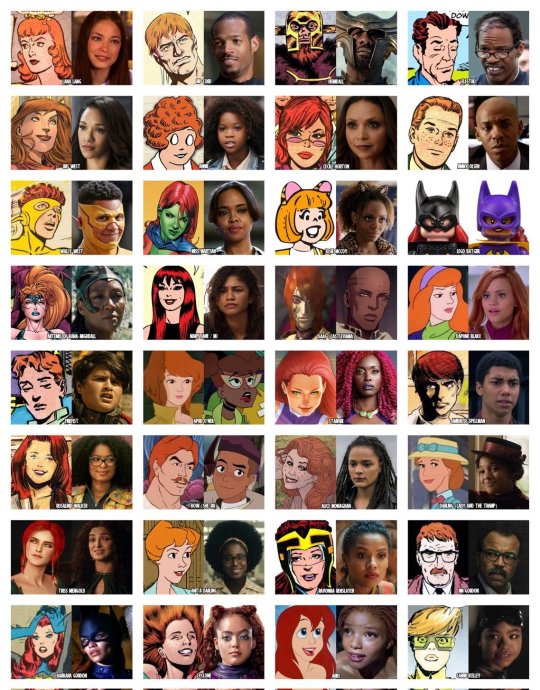
"No such thing as black washing" this person claims. Yeah sure ok. And here's another thing too. This same person said that white people can't experience racism. Only racial prejudice. No even your own definition does not agree with you unless you have a white supremacist view of the world. Which would mean you believe that white people are all powerful, so much so that they never lack power ever. Which is INSANE as a concept idea to me. Like really, WTF.
And let me be clear. The person that posited that you "can't be racist towards white people" put forward that the reason is because despite the definition of racism already been defined, they wanted to negate and expand it so that the only minority that can't be racist towards anyone are Black. It gets worse though. Consider the definition they are using. If you don't think whites as all powerful then you don't agree with your own ideas on the matter. Because it would mean that white people in predominantly non white countries COULD in fact have racism pointed against them. And it would also mean that you could not be racist against those white people as they lack power, or privilege.
Again unless YOU think it a privilege to be white. Which is a white supremacist talking point. IE: NOT A GOOD LOOK FOR YOU! But it gets better because that would mean that white people in most of Africa could not only experience racism, but could not be racist against the black people living there.
So the reason that we DON'T MINDLESSLY expand definitions is because they don't stay consistent. Because when presented with this argument, you change the rules and move the goal post and become a full fucking member of the KKK. "OH well white people have all the power globally, everyone else is lesser than even in countries where they are outnumbered and even despite being a global minority". The hilarity is real.
But moreover it's not "Anti Blackness" to point out that it seems to be perfectly fine when a character is race swapped from anything else to black. That's not just reasonable but normal somehow. But if it's from black or brown to anything else, half the US populace online seems to lose their collective shit. So what it sounds to me like is that you are black identity extremist, who will use white supremacist ideals to make yourself a victim as perpetually as possible.
What kills me more is the fact that White Supremacists? They love this. They want you to keep doing it. Why? Because you are proving their point right. At least on a surface level enough that they can make more people think they are in the right. Because it's literally, "See, when they take your characters, and your history it's fine. But if you take theirs they become the evil monsters we've been warning you about". I've legit at a fucking coffee house in Alabama while I was passing thought heard that shit. YOU ARE GIVING CREDENCE to their ideals. STOP! And stop claiming that all white people are racist.
Not only has that had over all negative effect on race relations, it will continue to get worse the more you push all of this. Because it's not just white people taking notice. It's Asians, it's Mexicans. NOW it's Egyptians and Greeks. And it's primarily stemming from a small subset of radical racial black supremacists in the US who want to be worshiped as perpetual victims as a means of attention and power.
Please kindly fuck off with that bullshit. I don't want to have to worry about going out with my friends and having to fucking fight shit heads who got so tired of this they decided to lean into it. YOU THINK your doing a good thing. You are not.
4 notes
·
View notes
Text
Hard agree with prev that colorblind casting in itself isn't the problem, but rather that we continue to NOT GET stories of real people of history and/or not get the full histories of how historical people we think we already know, like the Tudors, affected and interacted with people & communities of color in their own time periods, while simultaneously many shows try to hand us "diverse" casting as "proof" of Everything Being Good Now and Totally Not Racist Any More
Big shoutout also to prev's point that, in stories involving oppression etc, "You never see true allyship depicted among the poor and disenfranchised among the immigrants, indigenous, and Black and mixed people depicted in media FOR A REASON" - I'm no longer in school so am w/o the time & resources to research properly but there are REAMS of essays from many schools of political thought examining this point and what it often comes down too, nuances and specific circumstances aside, is about keeping people divided - and, especially when it comes to white people and racism, shielding them from the hArD qUeStIoNs of 1) wondering if not calling people slurs is really enough to not contribute towards maintaining a racist society and 2) why so many (in the U.S. at least) are so in love with supporting the rich white socio-economic ruling class that clearly does not love them back.
***side rant on colorblind casting bc apparently I have more thoughts lol: imo there's a real spectrum of colorblind casting which then impacts how anti-racist its effects can be (especially as it maps onto the range of vaguely-historically situated fiction to Stories About Real Historical Figures). Old-timey but ahistorical shows like Bridgerton are by their very nature of Ignoring Certain Aspects of History making quite different commentary on race and society than a show casting Black people to play real-life white royalty without addressing said royalty's relations with and effects on the lives of non-white people living during the same time period. I don't know anything about the show OP highlighted - but to me the key follow-up info that will determine the casting's impact is whether there's anyone else cast in a 'nonhistorical race,' for lack of a better phrase, and whether the show addresses it/the ramifications at all.
When it comes to plays and musicals, those same questions apply but laid across a secret third thing: that in the theater world (and arguably especially in musical theater) audiences are already expected to ignore the actual and accept the Symbolic - otherwise how else can the transformation of actors into characters that break out into song, or a minimal chair and drapery into a castle hall, be complete? (On the extreme end, think stage productions of Cats or The Lion King: they're obviously not animals. But good-faith engagement with the show means that, at the same time, you accept that these obvious-humans are cats for the next 2-3 hours, and without questioning why cats can now do high kicks or grand jetes)
The nature of theater is that the play remains but the cast is ever-changing - so each new production is a potential new thought experiment with new political commentary and ramifications, AND the venue encourages audiences to be open to the concomitant commentary and thought experiments instead of immediately rejecting 'counter-factual' castings.
I'll put my neck on the line here and address Hamilton because I think it's a good example of that kind of thought-experiment-through-casting. Hamilton is certainly not the Most Progressive show of all time, but I personally think the (non-white!) creators had pretty good socio-political intentions behind the colorblind casting - 1) explicitly centering non-white actors in deliberate opposition to many of the historical setting's mainstream values/narratives and 2) clearly making this policy a rebuke of the many, many 'historical' Broadway productions that have used the history-card as an excuse to ignore non-white actors or shunt them into method/bit parts only. I'm not connected enough to the theater world to know how wide or longstanding of an impact this had on casting practices. But in the sense that Hamilton was THE big-name Broadway-adjacent show of its generation to break into the non-musical theater mainstream, the very fact of a 'color-blind' cast in effect was a massive thought experiment that forced many people in mainstream US society to (re)consider long-held tenets about US history and values; and these resulting questions, and the experiment that birthed them, should not be dismissed as wholly useless or unhelpful.
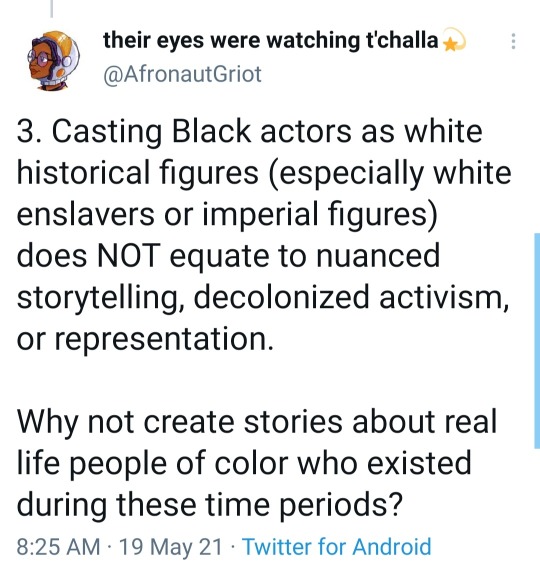
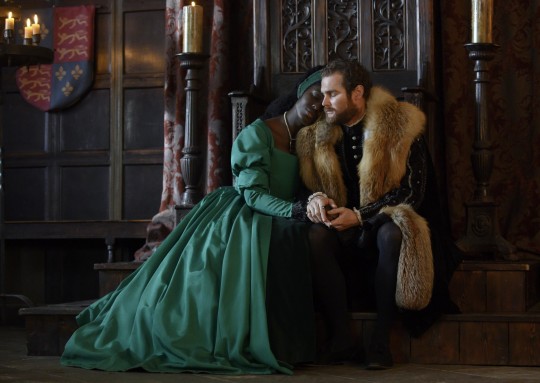
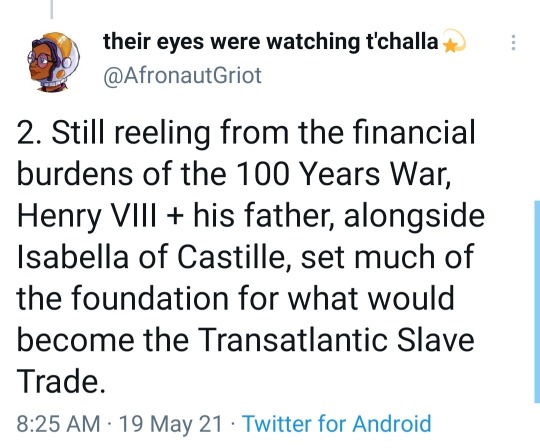
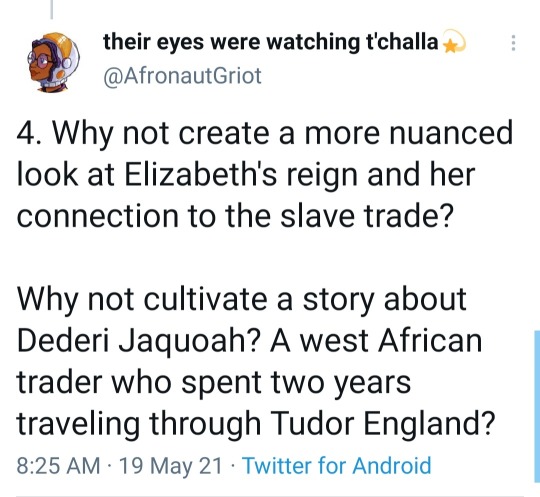
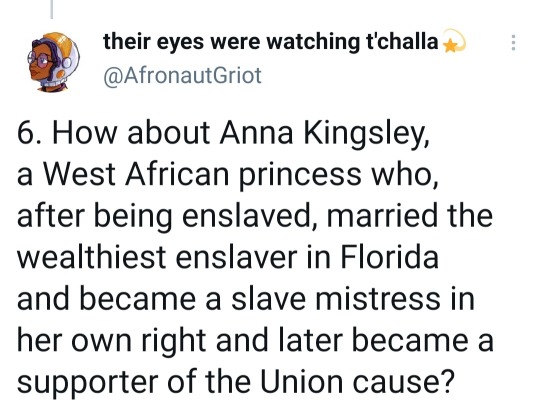
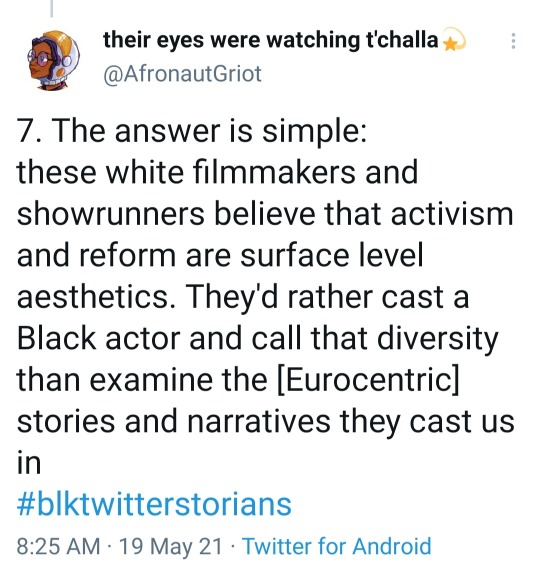
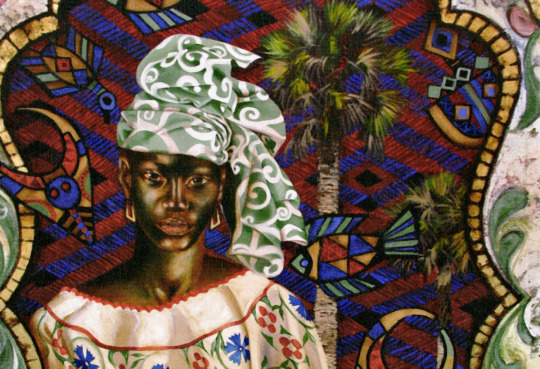
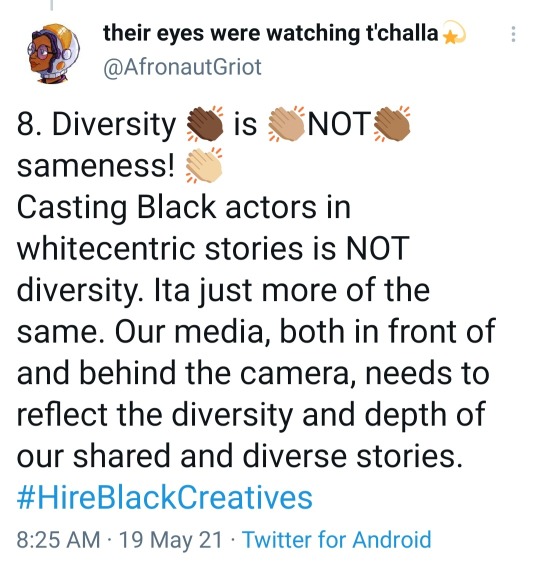
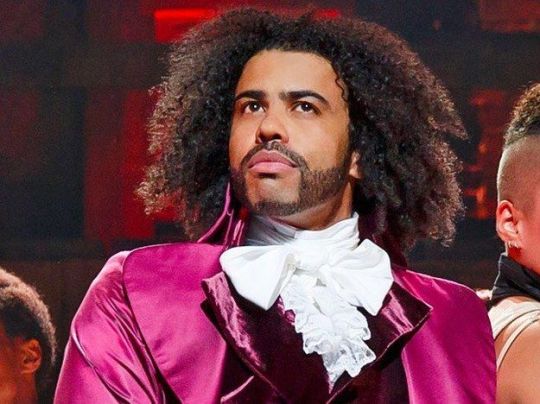
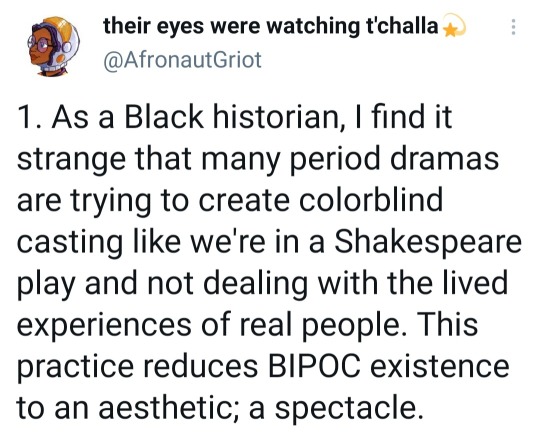
🗣 DIVERSITY IS NOT SAMENESS.
71K notes
·
View notes